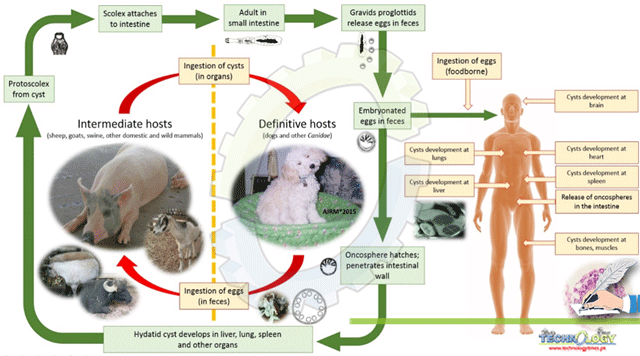The researchers found that the parasite Cryptosporidium infects a wide variety of animals and people, leading to significant financial losses and grave public health issues.

Researchers in the fields of veterinary medicine and animal husbandry have raised concerns about the dangers posed by cryptosporidium, which is known to be a major cause of diarrhoea and is frequently fatal due to severe dehydration. Cryptosporidium is an opportunistic zoonotic parasite that affects both humans and animals.
In a study carried out in three Khyber Pakhtunkhwa districts—Bannu, Lakki Marwat, and Kohat—the researchers discovered a higher prevalence of cryptosporidium in children (30/180), where it was found to be 16.66%, compared to adults (10/180), where it was found to be 5.55%.
Naimatullah Khan, Mohammad Hassan Saleem, Aneela Zameer Durrani, Nisar Ahmad, Ayesha Hassan, Sultan Ayaz, Sajid Umar, Mohammad Luqman Sohail, Mohammad Shafee, Ikramullah Khan, Mumtaz Ali Khan, Azmatullah Khan, Naimatullah Malik, and Abdul Razzaq are among the scholars who conducted the study.
The researchers found that the parasite Cryptosporidium infects a wide variety of animals and people, leading to significant financial losses and grave public health issues.
These factors are highly prevalent in the study area, where poor sanitation, open toilets, and shared water sources between humans and animals cause their spread among the human population, they added. Exposure to animals, poor sanitation, and unhygienic conditions are the factors responsible for transmission of the parasitic diseases.
This study is the first to focus on one of the major factors contributing to neonatal mortality in southern KP. The District Headquarters Hospitals of the three districts provided 360 stool samples, which were then examined under a microscope.
In all three districts, the results showed an overall prevalence of 11.11 percent. The area with the highest prevalence was Bannu (11.66%), followed by Lakki Marwat (10%) and Kohat (10%).
The results of statistical analysis showed that there were significant differences between the age groups of children, with the disease prevalence being highest in children under five years of age (21.40%) and lowest in children aged 11 to 15 years (15.99%).
The study included people who visited DHQ hospitals in the study area with abdominal abnormalities such as acute diarrhoea (three loose stools within the previous 24 hours) or persistent diarrhoea, vomiting (once within the previous 24 hours), and abdominal cramps. All of the participants had experience with both domesticated and wild animals.
According to the study, children who had frequent contact with domestic animals (20%) had a higher prevalence rate than children who had no contact with domestic animals (12.94%). Researchers cautioned that the age of children was discovered to be a significant risk factor for the occurrence of cryptosporidium. It’s possible that the lack of innate immunity is to blame for the disease’s high prevalence in children.
Additionally, children play more in the water, increasing their risk of infection, and children with diarrhoea visit DHQ hospitals more frequently than adults do. Early-onset cryptosporidiosis in the study area can also be linked to malnutrition, which has been noted as a possible risk factor for cryptosporidiosis-related diarrhoea.
As there is currently no vaccine available to protect against cryptosporidium infection due to limited understanding of its specific biology and difficulties encountered in vaccine development, the researchers advise prevention as the only means of preventing infection.
Therefore, they suggested, a thorough understanding of the various risk factors contributing to the spread of disease is unavoidable in order to design effective disease control and prevention strategies.
One of the four major causes of morbidity in preschool children, the zoonotic transmission of the parasite Cryptosporidium, was once again highlighted by the study. The study issued a warning that, given the inadequate healthcare facilities and limited treatment options in the study areas, things could get worse if ignored.